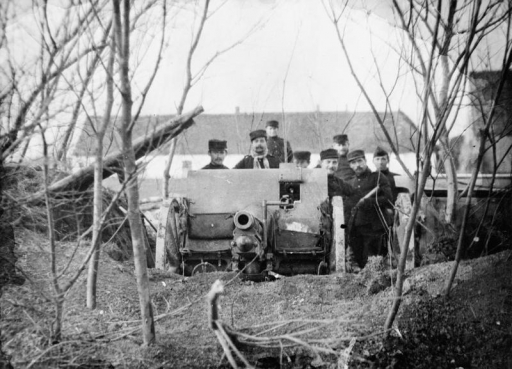Germany invades Belgium, prompting Britain to declare war on Germany, on behalf of the British Empire.
After the German invasion of neutral Belgium, Britain lodged an official protest with Berlin and called for German forces to withdraw from Belgium.
Britain declares war
Britain broke off diplomatic relations with Germany on the 4th August 1914 and set the German Government an ultimatum to withdraw its troops from Belgium.
Germany refused to meet the demands of the ultimatum and the German Chancellor, Theobald von Bethmann-Hollweg, denounced Britain as going to war over a “scrap of paper” – a reference to the 1839 Treaty of London which the European great powers had signed, guaranteeing the independence and neutrality of Belgium.
Britain declared war on Germany on the same day after an 11:00pm deadline for German withdrawal from Belgium expired.
The British Prime Minister, Herbert Asquith, addressed Parliament on the 6th August, announcing that:
“With the utmost reluctance and with infinite regret, His Majesty’s Government have been compelled to put this country in a state of war with what for many years and indeed generations past has been a friendly Power”.
With Britain’s declaration of war, the Empire also went to war, as the Prime Minister recognised as he closed his address to Parliament:
“With a full conviction, not only of the wisdom and justice, but of the obligations which lay upon us to challenge this great issue, we are entering into the struggle. Let us now make sure that all the resources, not only of this United Kingdom, but of the vast Empire of which it is the centre, shall be thrown into the scale”.
